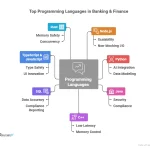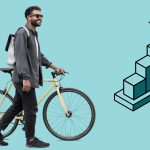
Assuming you have student loans, credit card debt or an outstanding balance from last year’s holiday shopping spree – managing multiple payments with different interest rates and due dates can be stressful. Debt consolidation could provide relief but ultimately it depends on your unique financial circumstances.
Begin by setting goals and researching potential options. Gain familiarity with your credit scores and reports in order to make an informed decision.
2. Find a Lender
Find lenders online offering personal loans with competitive rates, fees and terms. Some also provide prequalification tools so you can view loan offers without incurring a hard credit inquiry. Start your search at your bank or credit union’s rates before exploring other lender offers.
Review and understand your credit reports and scores to boost approval chances and potentially get lower interest rates when applying for debt consolidation loans. In general, lenders use factors like your debt-to-income ratio when determining whether to approve or deny loan applications.
Once you’ve identified a lender who meets your needs, apply for a loan. If approved by the lender, funds will be dispersed to creditors to cover outstanding balances on accounts that had debt balances. Make sure to monitor each account to verify it has been cleared off – contact each creditor separately so they know that payment has been made.
3. Apply for a Loan
Your credit score could qualify you for a debt consolidation loan with lower interest rates than those charged on credit cards, giving you one monthly payment and helping to make progress toward paying off debt faster.
Documents needed when applying for a loan include proof of income and identity documents; check that these items are at hand before starting. Some lenders provide prequalification tools so you can assess approval chances without harming your credit score.
As part of their application process, lenders may conduct a hard inquiry on your credit file which can temporarily impact your score. If this happens to be your situation, take steps to improve it before applying for loans – consulting a non-profit credit counselor may be beneficial too – they can assess your budget and debt before providing solutions to address them.
4. Make Payments
Consolidating debt payments using a personal loan can simplify bill paying, save money and help build credit. Debt consolidation typically reduces cumulative interest payments by consolidating multiple balances into one lower interest rate payment plan.
Personal loans provide longer repayment terms than credit cards, which could help you clear off what you owe more quickly. But remember that expanding the term of your loan could result in additional interest paid over time – it is therefore wise to carefully assess its impact before making your decision.
Be it debt consolidation loans or additional debt to speed up debt payoff, make timely payments to avoid late fees and preserve your credit standing. Budgeting apps such as Mint or You Need a Budget (YNAB) are useful in setting a spending strategy which helps put more towards loans faster. Aim for bi-weekly payments at minimum to speed up loan repayment and decrease overall debt over time.






